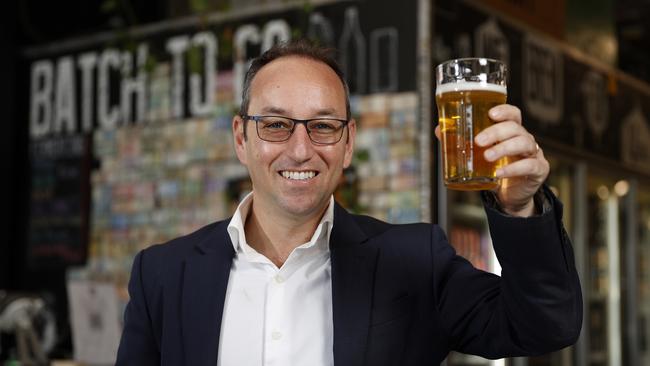Clubs propose lottery and free Keno to encourage Covid-19 vaccinations
Australia’s club industry has offered its 6413 clubs to the federal government to accelerate the vaccine rollout.

Australia’s club industry has offered its 6413 clubs to the federal government to accelerate the vaccine rollout, proposing a national Covid-safe lottery and free games of Bingo or Keno for patrons who agree to be vaccinated.
Clubs would also be encouraged to offer “Schooner or a Schnitzel for a Shot” – a free drink or meal for vaccinated members, in the submission by Clubs Australia to Treasurer Josh Frydenberg and Covid-19 taskforce commander Lieutenant General John Frewen.
The proposal is likely to receive serious consideration because clubs are popular with older Australians – a key at-risk demographic. Others cater to ethnic communities with non-English-speaking backgrounds, a cohort the government is concerned vaccination messages are not reaching.
Clubs have 13.2 million members and keep comprehensive databases on most of them, including contact details and dates of birth, so they could notify members in any age group that they are eligible for the vaccine.
Clubs Australia CEO Josh Landis said that with 392 million visits a year, clubs were uniquely positioned to serve as vaccination hubs, given their roles as not-for-profit, community institutions with abundant space and carparking. “We’re spread throughout the whole of Australia, we’ve got big meeting rooms, we’re trusted, and we’re open day and night – what else do you need?”
Mr Landis said the clubs could mobilise their 131,000 employees and 183,000 volunteers to assist. Many have courtesy buses that could transport patrons to and from the club to receive a vaccination if they were incapable of getting there themselves, he said.
“Like all Australians, the club industry is eager for a return to normality and is willing to support the … rollout to ensure that happens as soon as possible.”
Under the proposal, the existing lotteries framework would be leveraged to run a national lottery. Vaccination lotteries have been conducted in several countries around the world including the US and Hong Kong.
Ohio was the first US state to offer a $1m prize for people who had at least one shot of a vaccine – won in May by a 22-year-old engineering student who became a millionaire overnight. At least 12 other states award seven-figure prizes, under lotteries with titles like “Shot of a Lifetime,” “Vax for the Win” and (in West Virginia) “Do It for Babydog”.
In Alabama, the Talladega Superspeedway offers anyone 16 or older a chance to drive their car on the track if they get vaccinated.
In the lottery version proposed by Clubs Australia, anyone can enter but must demonstrate they are fully vaccinated to be eligible to receive the prize, which would be jointly funded by the clubs and government.
Some approvals would be needed from state governments because of exclusive lotteries licences for products like Keno.
Free entry to a game of Bingo, played largely by elderly people, would further enable targeting of at-risk groups, the clubs say.
“No stone should be left unturned when it comes to encouraging Australians to get vaccinated as a matter of urgency,” Mr Landis said. “Any extra incentive for them to do so will only speed up that process, so we can get back to normal.”
Clubs would also be encouraged to provide a drink or meal for vaccinated patrons, another idea that has been employed in several US states, some more upmarket than others – in New Jersey you can win a dinner at the Governor’s mansion, Drumthwacket, with the Governor and first lady.
Health Minister Greg Hunt is already redrafting rules banning the use of alcohol as an incentive to get vaccinated, after the Prince Alfred pub in Port Melbourne was reprimanded by the Therapeutic Goods Administration for its “free beers for jabs” campaign.




To join the conversation, please log in. Don't have an account? Register
Join the conversation, you are commenting as Logout